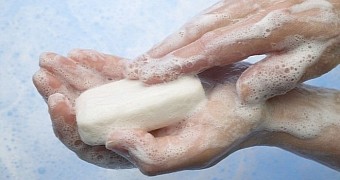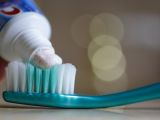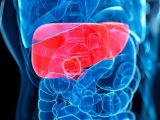In a recent paper, scientists with the University of California, San Diego in the US claim that a chemical compound commonly used to make soap constitutes a threat to public health. Specifically, they argue that the compound, dubbed triclosan, can cause liver fibrosis and cancer.
Admittedly, short-term exposure to this compound is highly unlikely to trigger any health trouble. The thing is that, in this day and age, pretty much everybody uses soap to wash at least their hands, if not other body parts as well, on a daily basis.
Add to this the fact that triclosan is also commonly found in shampoo and toothpaste, both of which are quite popular these days, and it should come as no surprise that the University of California researchers are a wee worried about their findings.
Is triclosan doing more harm than good?
Writing in the journal Proceedings of the National Academy of Sciences, the researchers behind this investigation detail that triclosan, whose official name is 5-chloro-2-(2,4-dichlorophenoxy)phenol, is added to soap, shampoo, toothpaste and the like because it has antimicrobial properties.
Thus, the compound serves to keep microorganisms that could make us sick at bay. Still, as already mentioned, evidence obtained by the University of California, San Diego researchers indicates that long-term exposure to triclosan can cause people to develop liver fibrosis and cancer.
To study how triclosan can affect an individual's health condition, the scientists carried out a series of experiments on mice. Specifically, they exposed them to this compound for a period of time of six months, which they say is the equivalent of 18 human years.
When the mice were treated with a cocktail of chemicals especially designed to cause liver tumors, the rodents that had previously been exposed to triclosan were found to be more susceptible to it. It a nutshell, they developed tumors faster and the abnormal tissue growths in their bodies were larger.
The University of California, San Diego scientists say that the triclosan encouraged the development of these tumors by making it more difficult for the animals' body to filter out harmful compounds and by paving the way for the onset of liver fibrosis.
Seeing how the molecular mechanisms that translated into the rodents' developing liver fibrosis and cancer are similar to human ones, the researchers cannot help but wonder whether or not adding triclosan to soap, shampoo and toothpaste isn't doing more harm than good.
“Triclosan’s increasing detection in environmental samples and its increasingly broad use in consumer products may overcome its moderate benefit and present a very real risk of liver toxicity for people, as it does in mice, particularly when combined with other compounds with similar action,” said Robert H. Tukey, PhD.
How best to deal with this problem
Having discovered that it's just long-term exposure to triclosan that can cause all sorts of health trouble, the specialists recommend that, rather than phasing out this compound entirely, efforts be made to remove it from specific house products.
“We could reduce most human and environmental exposures by eliminating uses of triclosan that are high volume, but of low benefit, such as inclusion in liquid hand soaps. Yet we could also for now retain uses shown to have health value – as in toothpaste, where the amount used is small,” explained scientist Bruce D. Hammock.
Interestingly enough, the US Food and Drug Administration has been investigating triclosan for quite a while now. Specifically, experts with the Administration are now looking into claims that this compound can upset a person's hormonal balance and affect proper muscle contraction.

 14 DAY TRIAL //
14 DAY TRIAL // 



